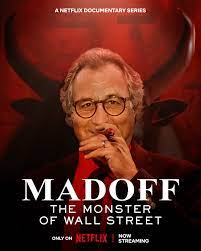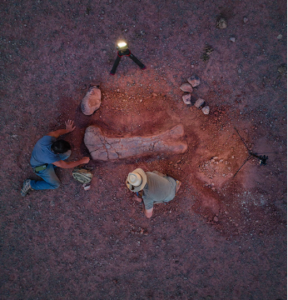I was tangled up in seemingly insoluble work problems, and feeling the stress of them, when I decided to take a distraction break. These stupid AGT acts were just the sort of mindless amusement that I needed.
Click here.
I was tangled up in seemingly insoluble work problems, and feeling the stress of them, when I decided to take a distraction break. These stupid AGT acts were just the sort of mindless amusement that I needed.
Click here.
The COVID Response. What We Got Wrong.
Part VII: The Accuracy of the Count

The topic for today is about accuracy. The accuracy of the count for the number of people that have been hospitalized and died from COVID since the pandemic began.
This is something I wrote about in the early days of the outbreak and have mentioned several times since then. I’ve been saying that the official count is misleading. And as such, it is meaningless. It greatly exaggerates the numbers that are relevant by the sort of verbal prestidigitation that would put an internet health product seller in jail.
The claim that I’ve been making is this: The counts we’ve been hearing about in the media – which are coming directly from the WHO and the CDC – are higher than they should be. And that is because, from the beginning, the CDC’s guidelines to hospitals were to report anyone that died with COVID as having died of COVID.
So… someone gets admitted to the hospital with a gunshot wound to the chest. He dies from loss of blood. Following CDC guidelines, he is tested for COVID. If he tests positive, the hospital is required to list him as having died from COVID. And this “COVID” death is then relayed to the CDC, which publishes it.
I know. This sounds like a crazy conspiracy theory. And that is what everyone said to me whenever I wrote or even talked about it. “That can’t possibly be true,” they said. “The CDC is a government agency. Led by scientists. They would never do something so obviously misleading!”
Truth be told, I stopped mentioning it because I came to believe what they were telling me. It can’t have been true. I must have been passing along fake information.
But then, just last week, I came across something in The Washington Post, the Jeff Bezos-run newspaper that has been staunchly defending Fauci and the CDC. (And not just defending Fauci and the CDC, but also attacking anyone that questioned anything they said.) It was an essay by WP columnist Leana Wen that validated what I’d been saying. According to the experts she interviewed, the hospitalization and death rates due to COVID have indeed been grossly exaggerated, precisely because of this trickery in reporting the numbers.
And the exaggeration is not small. The experts said the over-counting has been somewhere between 70% and 90%. This means that the CDC’s current estimate of an average COVID death rate of 400 per day is actually between 40 and 120!
At 40, that would average out to be +/- 14,000. At 120, that would average out to be +/- 44,000. In other words, a typical mortality rate for the flu!
There’s loads more to this story. And I’ll get deeper into it in the weeks ahead, as other stories from the mainstream media begin to parrot the WP so they can claim that they had not been covering up the facts.
In the meantime, you can read Wen’s article here.
And/or get more on her reporting here.

Madoff: The Monster of Wall Street
A four-part Netflix docuseries
Released Jan. 4, 2023
Directed by Joe Berlinger
Starring Joseph Scotto and Ginger O’Toole
According to some financial historians, Bernie Madoff committed the biggest investment fraud in US history, cheating tens of thousands of investors out of nearly $65 billion. This series details the Wall Street billionaire’s rise to power, fraudulent investing tactics, and eventual downfall.
A stockbroker, adviser, former NASDAQ chairman, and securities company founder, Madoff helped countless clients grow their funds. But it was all a lie. As expert trial witness Bruce Debinsky says in the series, “Madoff never did any investing for his investment advisory business. It involved simply taking people’s money, telling them he was going to invest their money, and he never did.”
After his 2008 arrest, Madoff left many victims in his wake, several of whom died by suicide or suspected suicide in the aftermath of devastating financial collapse. Sentenced to 150 years in prison for 11 felony charges, he died in 2021 from natural causes. (Source: Deep Dive)
What I Liked About It
Through archive footage, including a prison deposition given by Madoff himself during his victims’ lawsuit, interviews with Madoff employees and financial reporters, and dramatic reenactments, the series provides a lot of insight into…
* How Madoff pulled off his multi-decade swindle.
* The surprising range of people and companies that fell for it.
* The other characters you never heard about that were complicit.
* Why you should never, ever put all your eggs in one basket.
Critical Response
The Monster of Wall Street has received mostly favorable reviews from critics. A few examples:
* “Among Mr. Berlinger’s accomplishments in The Monster of Wall Street is not making the Madoff story remotely romantic, or even a parable, while at the same time putting blood in its veins.” (John Anderson, Wall Street Journal)
* “Joe Berlinger’s pacy four-parter treats the jaw-dropping story as a financial thriller, which makes sense.” (Chitra Ramaswamy, Guardian)
* “The series is at its most compelling when it places Madoff’s monstrousness within the context of the systemic self-interest and greed that allowed him to flourish.” (Dan Einav, Financial Times)
You can watch the trailer here.
George Saunders on How and Why to “Freakify” Your Work

George Saunders is among my favorite short story writers. I’ve mentioned him and his books several times in past blog posts.
Recently, strolling through the Literary Hub website, I found a conversation between him and Mike Errico, author of the book Music, Lyrics, and Life: A Field Guide for the Advancing Songwriter.
Early in the conversation, Saunders tells Errico that he began his career as a songwriter. After some years of trying, he concluded that he wasn’t very good at it, so he switched to another one of his interests: writing short stories.
As I alluded to above, Saunders’s short stories are among the best I’ve ever read. And it was a treat to read one of his secrets for writing a great one. He calls it “freakifying” – something that can be applied to just about any form of creative expression.
I was particularly struck by his definition of art (something that also intrigued Errico): “What’s important is that something undeniable and nontrivial happens between entry and exit,” Saunders says.
“Can you expand on that?” Errico asks.
Read Saunders’s answer, and the rest of the interview, here.
Is This Crazy? Or Am I?
Language Police “Wokerize” Another Phrase!

In January, following the lead of the University of Southern California’s School of Social Work, Michigan’s Dept. of Health and Human Services banned the use of the phrase “field worker.”
A field worker is usually defined today as someone who works outside of the office and travels to different locations. It is less frequently but still used to define a farm laborer. And it’s being banned because of “concerns” that using words like “going into the field” or “doing field work” may have racist connotations.
(I’m not making that up!)
I wonder how that’s going to work?
Let’s see. In the future…
* Speakers will no longer “field” questions from an audience, but “harvest” them.
* Baseball will be played on “locations of grass with strips of dirt.”
* Architecture and biology will no longer be “fields” of study, but just plain “subjects of study.” No, wait. That’s not right! Due to the possibility that post-colonialized people may be offended by “subjects of study,” they will be “thingies you can study.”
Bowdlerize (BOHD-ler-ize) describes the early 19th century policy of some publishers to modify or delete passages of books that they considered to be objectionable, particularly for children. The term comes from Thomas Bowdler (1754-1825), an English physician, who, in 1818, published a censored version of William Shakespeare (The Family Shakespeare), expurgating “those words and expressions… which cannot with propriety be read aloud in a family.”
“When you police words, you regulate language. When you regulate language, you control thought. When you control thought, you rule behavior. When you rule behavior, you destroy freedom. When you destroy freedom, you destroy the future and the dignity of life.” – Michael Masterson
A Surprise Discovery!

Paleontologists Paul Sereno and Dan Vidal were walking between dig sites in the Sahara when they stumbled upon something in the sand. After a closer look, they realized it was a fossil: a femur from a dinosaur known as a sauropod.
Read Sereno’s account of how it happened here.
Re my comments in last Friday’s issue about the correlation between wealth and happiness:
“I attended a religious retreat years ago, given by a priest who had spent more than 30 years in the jungles of Brazil. Among the poorest people on Earth, he claimed. Yet, he told us, they were the happiest people he had ever met.
“By the way, I went to Paradise Palms. Amazing and beautiful.” – GM
Re my story in Tuesday’s issue about helping a guy out:
“You paid the cops in cash. Do you think it’s possible that they kept the cash and, a few days later, impounded the poor man’s car?” – AS
My Response: Yes, I did think about that afterwards. Ugh! It would have been terrible if they did!
From Australia: Here’s something you don’t see every day – a man stopping traffic to help a koala cross a busy highway.

Watch the video here.